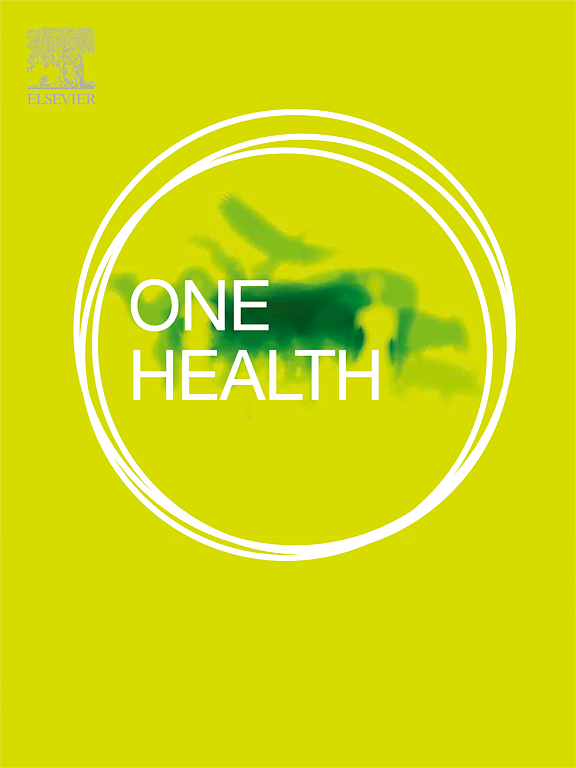Understanding one health challenges in marginalized urban settings: A patient and public involvement (PPI) approach from the CHIP consortium activities across four global cities
IF 4.1
2区 医学
Q1 INFECTIOUS DISEASES
引用次数: 0
Abstract
Background
Slum communities face health risks influenced by environmental, human, and animal health factors, particularly antimicrobial resistance (AMR). Tailored, community-driven solutions are needed to address these multifactorial health determinants. This study explores One Health challenges in urban slums using a Patient and Public Involvement (PPI) approach.
Objectives
This study aims to use qualitative methods within a PPI framework to examine the social, environmental, and animal health factors contributing to AMR and other health challenges in urban slums. Focusing on One Health, we engaged slum residents in Jaipur, Jakarta, Antofagasta, and Istanbul through participatory approaches like social mapping and transect walks to identify health risks and develop intervention strategies.
Methods
A PPI approach was employed to involve communities in the research process, ensuring culturally relevant insights. Data collection included social mapping, transect walks, and key informant interviews in the four cities, highlighting critical health determinants such as environmental contamination, healthcare access, and animal-related risks. Thematic analysis identified common challenges and intervention opportunities within the One Health framework.
Conclusion
The study underscores the importance of PPI in addressing One Health challenges in urban slums and reveals interconnected human, environmental, and animal health risks. Engaging communities fostered trust and provided locally relevant solutions to complex health issues like AMR. Future interventions should be co-designed with communities to address social determinants like sanitation and healthcare access for sustainable outcomes.
了解边缘化城市环境中的健康挑战:从 CHIP 联合体在全球四个城市开展的活动中得出的患者和公众参与 (PPI) 方法
背景贫民窟社区面临着受环境、人类和动物健康因素影响的健康风险,尤其是抗菌药耐药性 (AMR)。要解决这些多因素的健康决定因素,需要量身定制、以社区为导向的解决方案。本研究采用 "患者和公众参与"(Patient and Public Involvement,PPI)方法探讨了城市贫民窟面临的 "一体健康 "挑战。本研究的目的是在 PPI 框架内采用定性方法研究导致 AMR 和城市贫民窟其他健康挑战的社会、环境和动物健康因素。我们以 "一个健康 "为重点,通过社会地图绘制和横断面步行等参与式方法,让斋浦尔、雅加达、安托法加斯塔和伊斯坦布尔的贫民窟居民参与其中,以确定健康风险并制定干预策略。数据收集工作包括在四个城市进行社会地图绘制、横断面步行和关键信息提供者访谈,重点关注关键的健康决定因素,如环境污染、医疗保健途径和动物相关风险。专题分析确定了 "一体健康 "框架内的共同挑战和干预机会。 结论这项研究强调了公众参与在应对城市贫民窟 "一体健康 "挑战方面的重要性,并揭示了相互关联的人类、环境和动物健康风险。社区的参与促进了信任,并为复杂的健康问题(如 AMR)提供了与当地相关的解决方案。未来的干预措施应与社区共同设计,以解决环境卫生和医疗保健等社会决定因素,从而取得可持续的成果。
本文章由计算机程序翻译,如有差异,请以英文原文为准。
求助全文
约1分钟内获得全文
求助全文
来源期刊

One Health
Medicine-Infectious Diseases
CiteScore
8.10
自引率
4.00%
发文量
95
审稿时长
18 weeks
期刊介绍:
One Health - a Gold Open Access journal.
The mission of One Health is to provide a platform for rapid communication of high quality scientific knowledge on inter- and intra-species pathogen transmission, bringing together leading experts in virology, bacteriology, parasitology, mycology, vectors and vector-borne diseases, tropical health, veterinary sciences, pathology, immunology, food safety, mathematical modelling, epidemiology, public health research and emergency preparedness. As a Gold Open Access journal, a fee is payable on acceptance of the paper. Please see the Guide for Authors for more information.
Submissions to the following categories are welcome:
Virology,
Bacteriology,
Parasitology,
Mycology,
Vectors and vector-borne diseases,
Co-infections and co-morbidities,
Disease spatial surveillance,
Modelling,
Tropical Health,
Discovery,
Ecosystem Health,
Public Health.
 求助内容:
求助内容: 应助结果提醒方式:
应助结果提醒方式:


